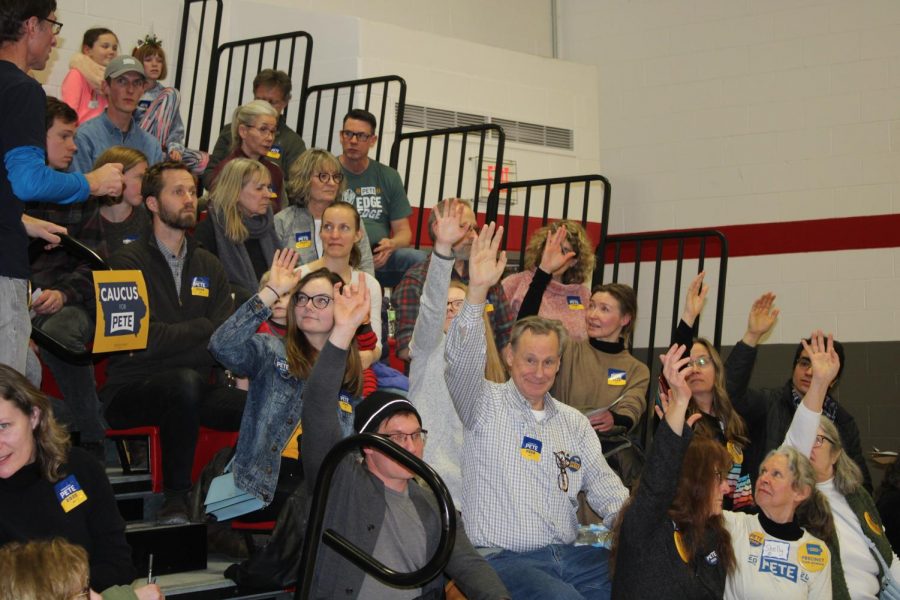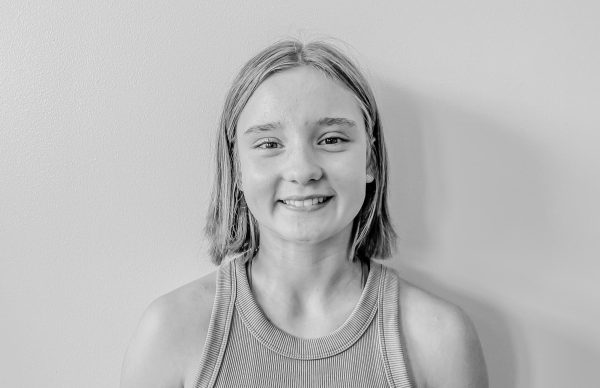Caucus Chaos
Pete Buttigieg supporters being counted at the caucus at South East Junior High
February 4, 2020
Iowa Democrats, gathered in high school gymnasiums, libraries, hotels and even some houses, met their neighbors for the quadrennial Iowa caucuses. This year, a number of changes have been made to the caucuses to make the process more democratic and accessible. Satellite caucuses were offered for the first time in 87 locations, including some overseas. After the first round alignment, caucus-goers in a viable group are unable to leave that group during the second alignment.
In the past, candidate support has been ranked based on the number of delegates they are rewarded as a result of the caucuses. As a result of the 2016 caucuses, the popular vote from the caucuses is being recorded as well. Voter preference cards, a piece of paper that a caucus-goer writes their preferred candidate on, are being used to keep track of the number of raw votes.
Usually, the results of the caucuses are released the same night as the caucuses, or early the next morning. In 2016, Hillary Clinton was declared the winner at 2:30 am the morning after the caucuses. However, due to “inconsistency errors,” the results of the 2020 Iowa caucuses will not be released until 4:00 pm central time on February 4.
There was a new app, created by a company called Shadow Inc., used to record the results of the caucuses. Precinct leaders across the state have reported being unable to download the app at all. The app was not distributed through the Apple or Android app store, like other apps are, but through a testing program called TestFairy. According to The Verge, this may be why precinct leaders were unable to download it.
On Monday night, precinct leaders were unable to contact the Iowa Democratic Party, or IDP. Precinct leaders reported that they were put on hold by the IDP when they called to get help with the app or call in the results.
The IDP released a statement late Monday night saying that there were inconsistencies in the three sets of results–the raw vote from the first alignment, the raw vote from the second alignment, and the number of delegates. Because of this, the IDP held the results of the caucus to make sure that the numbers it released were correct.
The statement released by the IDP confirmed that the app was not hacked.
Evan McElroy ‘21 was not surprised by the problems with the lack of results.
“This is exactly what I would have expected from our political system at this point,” McElroy said. “I’m not very surprised that they managed to screw this up this badly but hopefully they figure it out because it is important.”
Ana Van Beek ‘21 feels like the rest of the country should be patient while they wait for the results.
“I’m not mad at them,” Van Beek said. “I feel like they’re trying their best and if we use technology there’s always going to be an issue.”

































